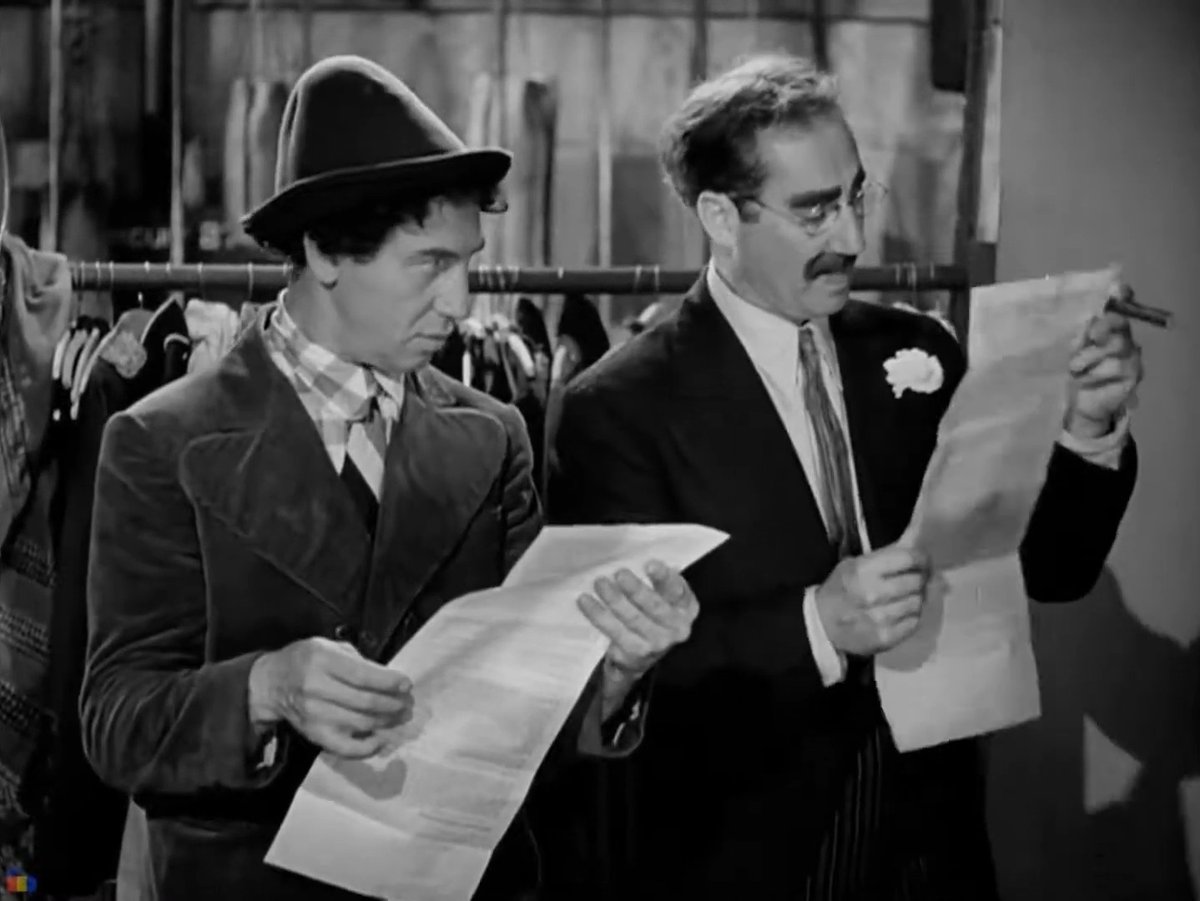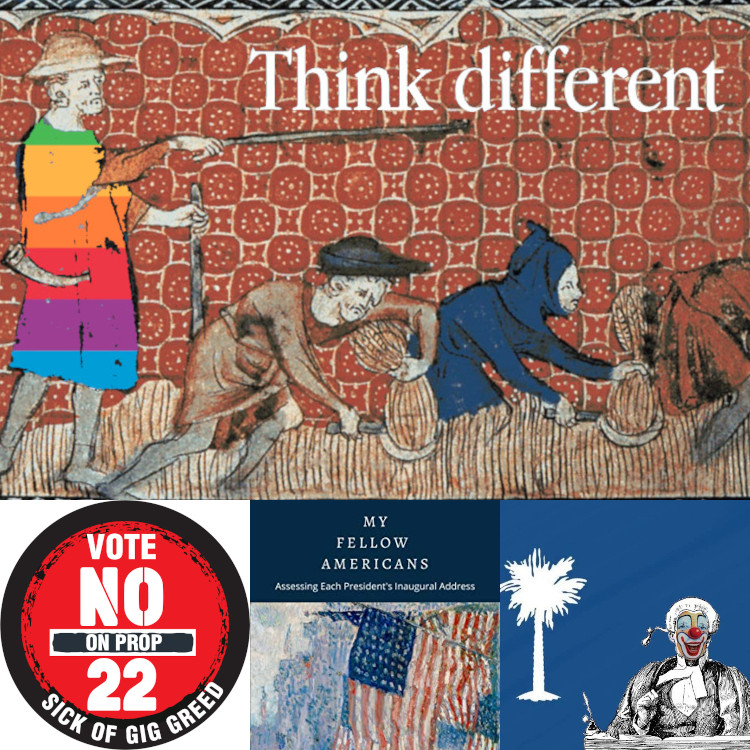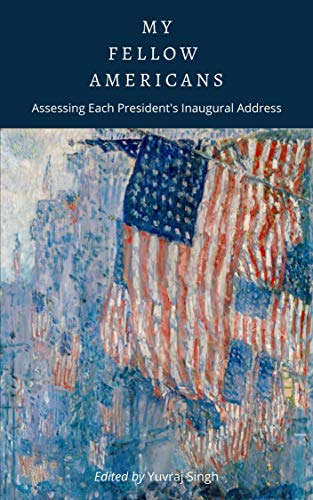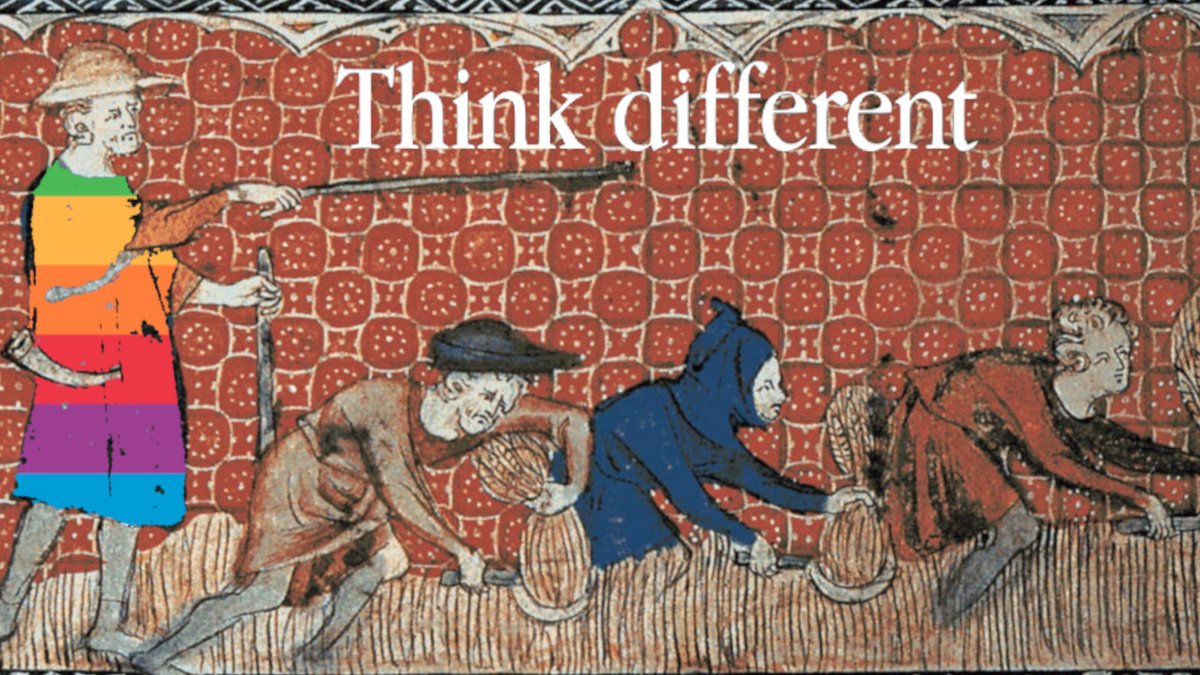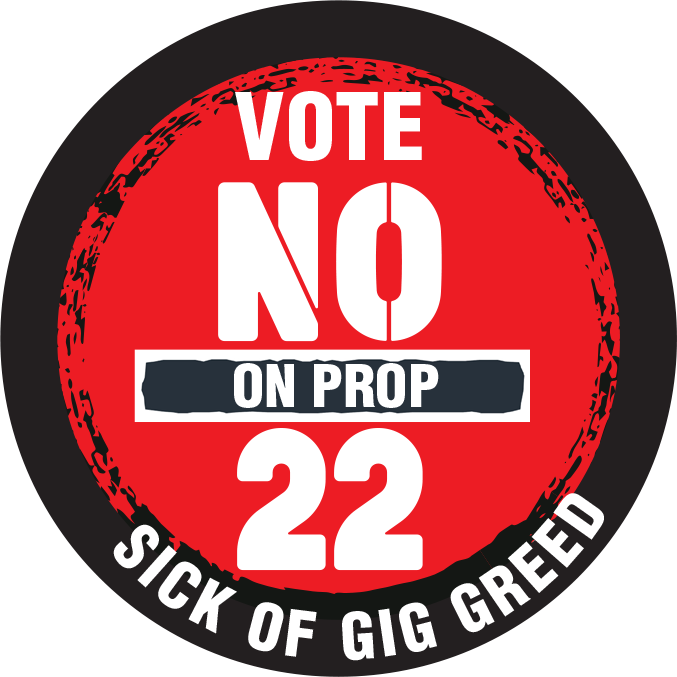
Today's Twitter threads (a Twitter thread).
Inside: Ad-tech is a bezzle; Google's unionizing; The Data Detective; Damon Knight's Why Do Birds is back; Endorsing the Forward 43 slate; and more!
Archived at: pluralistic.net/2021/01/04/how…
#Pluralistic
1/
Inside: Ad-tech is a bezzle; Google's unionizing; The Data Detective; Damon Knight's Why Do Birds is back; Endorsing the Forward 43 slate; and more!
Archived at: pluralistic.net/2021/01/04/how…
#Pluralistic
1/

Ad-tech is a bezzle: The subprime attention crisis is upon us.
2/
https://twitter.com/doctorow/status/1346110568147476481
2/

Google's unionizing: Solidarity vs worker misclassification.
3/
https://twitter.com/doctorow/status/1346123795417817088
3/

The Data Detective: How to truth with statistics.
4/
https://twitter.com/doctorow/status/1346125653389631489
4/

Damon Knight's Why Do Birds is back: Reviving a grand master's comic masterpiece.
5/
https://twitter.com/doctorow/status/1346130718125035520
5/

Endorsing the Forward 43 slate: For my California comrades.
6/
https://twitter.com/doctorow/status/1346134283564376064
6/

December 26th's threads: Email sabbaticals; Chaos Communications Congress; Landmark US financial transparency law; Rogues' Galleries and facial recognition; Jan 1 is Public Domain Day for 1925; and more!
8/
https://twitter.com/doctorow/status/1339277833634365441
8/

My latest novel is Attack Surface, a sequel to my bestselling Little Brother books. @washingtonpost called it "a political cyberthriller, vigorous, bold and savvy about the limits of revolution and resistance."
Get signed books from @DarkDel: darkdel.com/store/p1840/Av…
9/
Get signed books from @DarkDel: darkdel.com/store/p1840/Av…
9/
I have a (free) new book out! "How to Destroy Surveillance Capitalism" is an anti-monopolist critique of Big Tech that connects the rise of conspiratorial thinking to the rise of tech monopolies and proposes a way to deal with both:
onezero.medium.com/how-to-destroy…
10/
onezero.medium.com/how-to-destroy…
10/
My ebooks and audiobooks (from @torbooks, @HoZ_Books, @mcsweeneys, and others) are for sale all over the net, but I sell 'em too, and when you buy 'em from me, I earn twice as much and you get books with no DRM and no license "agreements."
craphound.com/shop/
11/
craphound.com/shop/
11/

Upcoming appearances:
* Evening with William Gibson, Jan 25, eventbrite.com/e/william-gibs…
* Keynote, NISO Plus, Feb 22-25, niso.plus/cory-doctorow-…
12/
* Evening with William Gibson, Jan 25, eventbrite.com/e/william-gibs…
* Keynote, NISO Plus, Feb 22-25, niso.plus/cory-doctorow-…
12/

Recent appearances:
* Hedging Bets on the Future (Motherboard):
play.acast.com/s/cyber/hedgin…
* Applying the Pandemic Mindset to Climate Change:
hbr.org/podcast/2020/1…
* 2020 Beaverbrook Lectures:
* Bibliotherapy/Shelf Healing:
buzzsprout.com/1509671/6580831
13/
* Hedging Bets on the Future (Motherboard):
play.acast.com/s/cyber/hedgin…
* Applying the Pandemic Mindset to Climate Change:
hbr.org/podcast/2020/1…
* 2020 Beaverbrook Lectures:
* Bibliotherapy/Shelf Healing:
buzzsprout.com/1509671/6580831
13/

My first picture book is out! It's called Poesy the Monster Slayer and it's an epic tale of bedtime-refusal, toy-hacking and monster-hunting, illustrated by Matt Rockefeller. It's the monster book I dreamt of reading to my own daughter.
pluralistic.net/2020/07/14/poe…
14/
pluralistic.net/2020/07/14/poe…
14/

You can also follow these posts as a daily blog at pluralistic.net: no ads, trackers, or data-collection!
Here's today's edition: pluralistic.net/2021/01/04/how…
15/
Here's today's edition: pluralistic.net/2021/01/04/how…
15/
If you prefer a newsletter, subscribe to the plura-list, which is also ad- and tracker-free, and is utterly unadorned save a single daily emoji. Today's is "👛". Suggestions solicited for future emojis!
Subscribe here: pluralistic.net/plura-list
16/
Subscribe here: pluralistic.net/plura-list
16/
Are you trying to wean yourself off Big Tech? Follow these threads on the #fediverse at @pluralistic@mamot.fr.
Here's today's edition: mamot.fr/@pluralistic/1…
17/
Here's today's edition: mamot.fr/@pluralistic/1…
17/
Today's top sources: Ken Snider (twitter.com/orenwolf), Slashdot (slashdot.org), Margo Rowder (twitter.com/margorowder).
eof/
eof/

• • •
Missing some Tweet in this thread? You can try to
force a refresh


